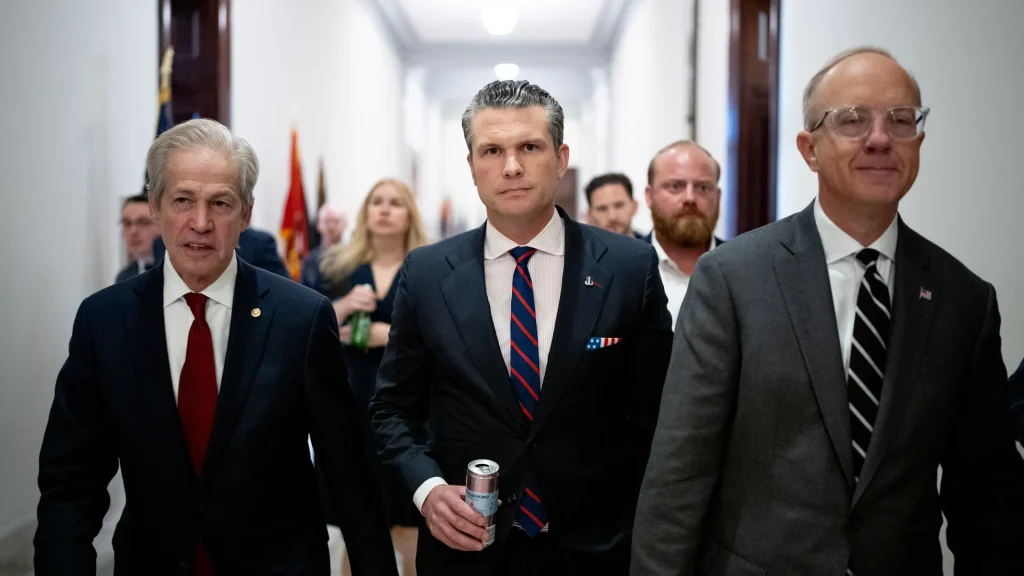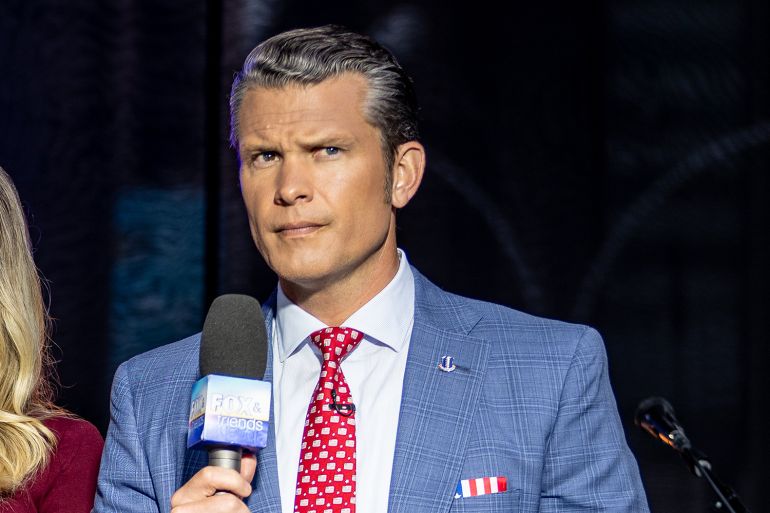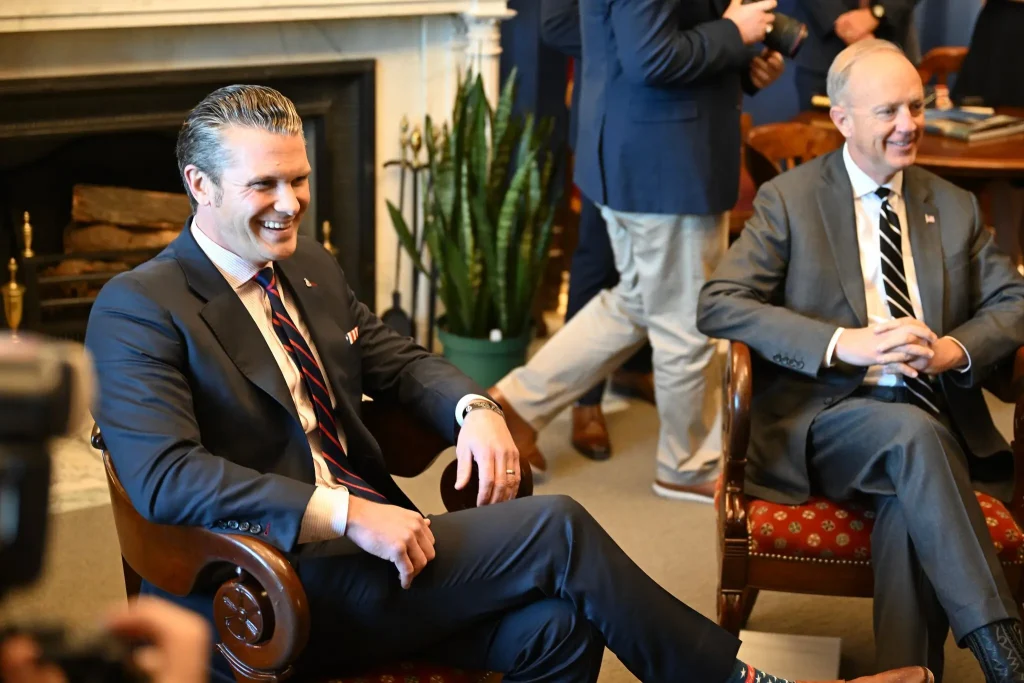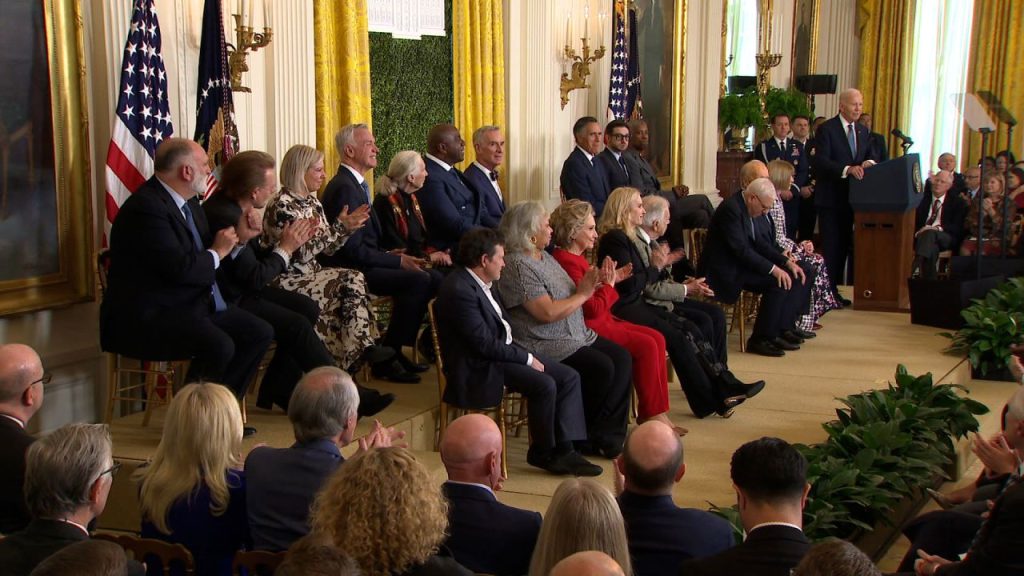Trump Considers DeSantis for Defense Secretary as His Support for Hegseth Falters
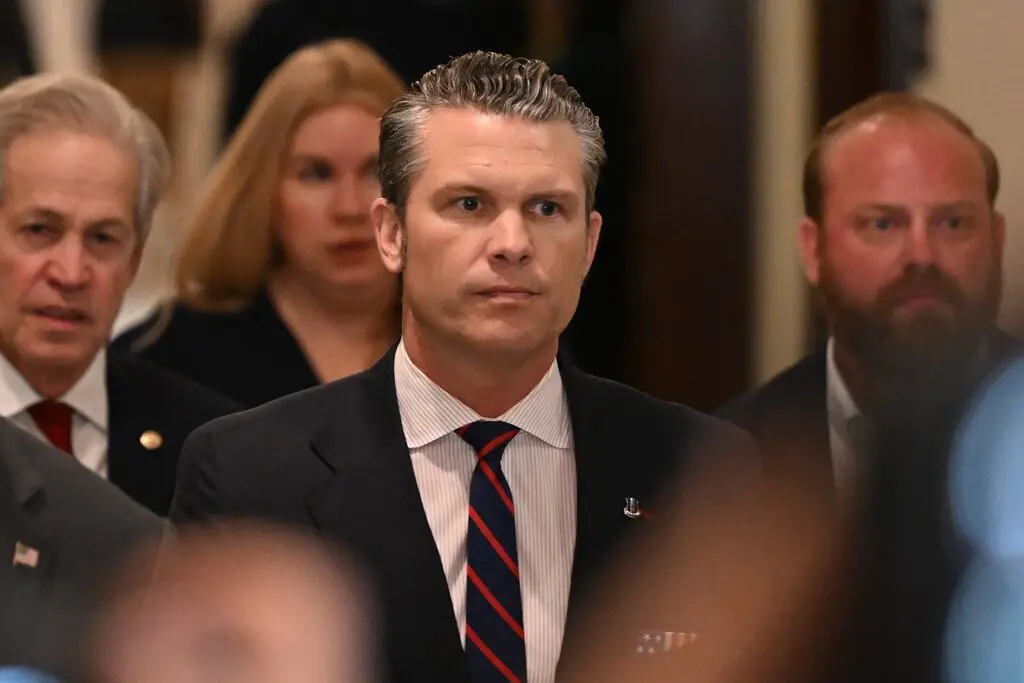
In a new turn of events, former President Donald Trump is reportedly considering Florida Governor Ron DeSantis for the role of Secretary of Defense in his hypothetical second term, as his support for other candidates, including Fox News contributor Pete Hegseth, appears to be wavering. The development marks a potential shift in Trump’s inner circle and offers insight into his evolving approach to key national security positions should he win the presidency again.
Trump’s Changing Support Dynamics
Trump’s presidential campaigns have been characterized by a distinct and often unpredictable approach to staffing his administration. During his first term, his choices for key positions were sometimes influenced by personal relationships, media endorsements, or loyalty to his political agenda. As he prepares for a potential return to the White House, however, his support base within the Republican Party appears to be more fluid.
In the case of Pete Hegseth, a former Army National Guard officer and a staunch supporter of Trump, the Fox News host was initially seen as a front-runner for the position of Secretary of Defense. Hegseth’s vocal advocacy for military reform, strong defense policies, and his alignment with Trump’s “America First” agenda seemed to make him an ideal candidate. However, as Trump has begun reconsidering his options, it appears Hegseth’s prospects for the role are dimming, giving way to new possibilities, including DeSantis.
The DeSantis Factor
Ron DeSantis, the popular governor of Florida, has emerged as one of Trump’s most significant political rivals, especially in the context of the 2024 Republican primary. Known for his hard-right policies on issues such as immigration, COVID-19 restrictions, and his approach to education, DeSantis has garnered a significant following within the Republican Party. His ability to blend conservatism with a practical, state-level governance record has made him a formidable figure in national politics.
Trump’s consideration of DeSantis for the role of Defense Secretary suggests a complex political calculation. DeSantis, while a direct political threat to Trump’s reelection bid, may offer unique advantages for the former president’s administration. As the governor of Florida, DeSantis has positioned himself as a strong advocate for military veterans, law enforcement, and national defense, all of which could align with Trump’s vision of a robust military and national security strategy.
Additionally, by offering DeSantis a high-profile cabinet position, Trump might be seeking to mend ties with some of his political allies and supporters who view DeSantis favorably. DeSantis’s strong standing within the Republican base could also help solidify Trump’s appeal among centrist voters, especially those concerned with national defense and military readiness.
A Shift in Trump’s Approach to Defense Policy
Trump’s potential decision to consider DeSantis for the role of Secretary of Defense also signals a possible shift in his approach to defense policy in a second term. During his first term, Trump was known for his “America First” stance, which emphasized reducing U.S. military involvement overseas, focusing on military readiness at home, and challenging NATO allies to contribute more to defense spending.
However, as global geopolitical tensions rise, particularly with China and Russia, Trump’s defense priorities may need to adapt. The inclusion of a figure like DeSantis, with his strong stance on national defense and military preparedness, may indicate a more assertive posture on global security issues, while still maintaining a focus on prioritizing American interests.
The Military Background of Pete Hegseth
While Trump’s consideration of DeSantis for the role of Defense Secretary is making headlines, the idea of Hegseth taking on such a prominent role is far from over. Pete Hegseth has significant experience within military circles, having served in the National Guard and worked as a military analyst for Fox News. His advocacy for a more aggressive approach to defense spending and his strong support for veterans’ issues have made him a popular figure in conservative military circles.
Hegseth has also been a vocal supporter of Trump’s policies, particularly regarding military funding and defense reforms. His supporters argue that his direct experience with the military gives him a unique perspective that could be beneficial in managing the Pentagon. However, Trump’s wavering support for Hegseth has caused many to question whether Hegseth’s ties to the media and his role as a commentator could hinder his ability to manage the Defense Department effectively.
The Implications of a DeSantis Appointment
If Trump does ultimately offer DeSantis the role of Defense Secretary, the move would have significant political implications. DeSantis’s involvement in the administration could serve to strengthen Trump’s position within the Republican Party, especially if DeSantis remains a key ally despite his ambitions for higher office.
Moreover, DeSantis’s selection for such a critical national security role could signal a shift towards a more traditional Republican approach to defense, emphasizing military strength, strategic alliances, and global influence. DeSantis’s military-focused agenda, combined with his focus on state-level governance and conservative values, could provide Trump with a unified defense policy that appeals to a broad swath of the Republican electorate.
As Donald Trump contemplates his options for Defense Secretary in a potential second term, the consideration of Ron DeSantis reflects the dynamic and ever-changing nature of political alliances within the Republican Party. With Trump’s initial support for Pete Hegseth faltering, DeSantis may be seen as a stronger, more influential choice who could help Trump shore up support within the party and bolster his national security agenda.
Whether or not DeSantis ultimately accepts a cabinet role under Trump remains to be seen. Still, the speculation surrounding this potential appointment highlights the importance of national defense in the 2024 election cycle and the significant impact such decisions could have on the future of U.S. foreign policy and military strategy. With both Trump and DeSantis vying for influence, the question of who will lead America’s defense in the coming years is one that could shape the trajectory of global power dynamics.


